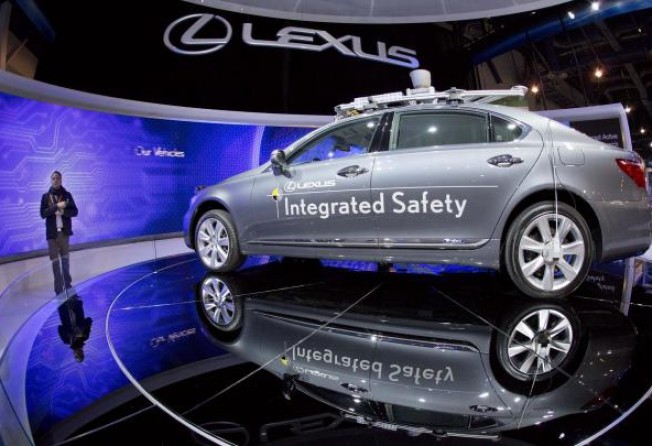Take a ride in the legal labyrinth of driverless cars
Policymakers need to devise a new regulatory framework and clear rules on liability issues

Picture it. You slip into your car, recline and start reading the day's news on your smartphone. The vehicle accelerates, smoothly navigates traffic and seamlessly merges on to the freeway, without you lifting a finger.
All around you, other autonomous cars zoom by. Each operates safely at high speeds, halving your commute time. Each drives with precision, eliminating congestion and conserving fuel. Each respects pedestrians, avoids collisions and always takes the most efficient route. Your car drops you at the office, then parks itself in a lot on the outskirts of town, where it awaits your summons at quitting time.
Such a glorious commute may be decades away. But the era of autonomous cars is fast approaching. Last week, Audi and Toyota Motor both made headlines with advances in automated driving. Google has been a much-publicised pioneer in the field. General Motors, Daimler and Nissan Motor have plans to automate their products to varying degrees.
And no wonder. Autonomous cars could create lucrative new businesses, spur welcome advances in public planning, vastly improve our quality of life, mitigate human error on the roads and, not least, reduce the more than 30,000 annual driving fatalities in the United States alone. There will also be drawbacks and unintended consequences. That's why policymakers need to start planning for a future that seems to be arriving faster than we ever expected.
Three issues in particular require scrutiny.
First, we'll need a new legal and regulatory framework. State and federal driving laws obviously weren't written with this technology in mind, but as Bryant Smith of Stanford University's Centre for Internet and Society has argued, automated vehicles are almost certainly already legal throughout the US.
State lawmakers should also develop common legal and technical definitions; words such as "driverless" and "automated" are often used blithely yet can mean different things. And states should consider how they'll need to update their licensing and registration rules and revise traffic laws to better accommodate autonomous technology.
Federal legal clarity is also essential. The National Highway Traffic Safety Administration should be transparent about any plans to update its rulebook and when it intends to act.
In doing so, it should remember that there is a wide spectrum of automated technology, so regulation must be flexible. And it should take special care not to inhibit innovation in a quickly evolving field. One approach would be to focus more on conceptual standards, such as requiring that autonomous cars not exceed a certain number of accidents per million miles, rather than mandating specific safety features.
Next, policymakers will have to devise clear rules for determining liability. Resolving this issue will be messy. A smart first step would be to require event data recorders - "black boxes" that contain information about a car's operation before a crash - in all autonomous cars, with adequate privacy safeguards.
Congress should also consider the model offered by the National Vaccine Injury Compensation Programme. Autonomous vehicles may in the future be judged an essential social good. But the potential for rare but extremely costly lawsuits could inhibit manufacturers from meeting demand. To ease such concerns, Congress could direct claims against manufacturers to a special federal court and establish a fund to compensate accident victims.
Finally, ceding our roads to computers will be a complicated and chaotic process. It will involve all kinds of strange moral considerations and trade-offs. It could transform our physical environment, our economy and quite possibly our entire way of life. The technology is unquestionably revolutionary. Just don't expect it to be a joyride.
Lai See is on holiday